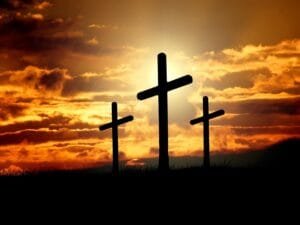What Does Religion Have to Do with John Coltrane’s Music?
Have you ever wondered how an artist’s personal beliefs can shape their work? For John Coltrane, the legendary jazz saxophonist and composer, religion wasn’t just a background element; it was a foundational aspect of his music and identity. From the mesmerizing improvisations to transcendent themes, the spiritual influences in his work invite deep reflection about the intersection of faith and art.
As you journey through Coltrane’s life and music, you’ll discover how his religious beliefs shaped his creative expression, formed his personal journey, and inspired countless fans and musicians alike. Ready to unravel the spiritual threads woven into his compositions?

The Life of John Coltrane: A Spiritual Awakening
Early Life and Musical Foundations
John Coltrane was born in 1926 in Hamlet, North Carolina. Growing up in a supportive family, music was a constant presence early in his life, with his mother being a musician and his father playing various instruments. You might find it interesting to note that his early exposure to music included both traditional African-American spirituals and church hymns, which would later influence his improvisational style.
Military Service and Inspiration
Coltrane’s time serving in the Navy during World War II was pivotal. In the heat of conflict, he found solace in music, practicing his saxophone whenever he could. This period also marked the beginning of his spiritual quest. After the war, he immersed himself in various musical styles, but it wasn’t until he began exploring jazz that he felt a profound connection with sound transcending mere melody.
Encounter with Spiritual Beliefs
In the 1950s, as Coltrane faced both personal and professional challenges, a transformative event occurred. After battling addiction, he experienced a spiritual awakening that directed him toward a more profound exploration of life. Around this time, he started delving into various religious beliefs, including Eastern spirituality, Christianity, and ideas from transcendentalism. This eclectic approach influenced not only his personal life but also his artistry.
The Impact of Religion on Coltrane’s Music
The Spiritual Dimension of His Compositions
At the heart of Coltrane’s music lies an unmistakable spiritual energy. He often sought to express concepts of love, faith, and existence through improvisation. Take, for example, “Love Supreme,” a suite composed in 1959 and inspired by his commitment to God. You’ll find that this work exemplifies how spiritual themes manifest in musical form, giving listeners not only a musical experience but a journey into spirituality itself.
Musical Techniques Influenced by Faith
Coltrane utilized various techniques reflecting his spiritual journey. His innovative use of modal jazz allowed him to explore harmonic structures that evoke a sense of freedom and transcendence. You may notice this in tracks like “Giant Steps,” where he breaks away from traditional jazz structures, inviting listeners to experience music that feels liberating yet deeply emotional.
Imbuing Traditional Elements with a Spiritual Essence
The influence of religious traditions can also be heard in Coltrane’s incorporation of religious motifs and structures from various cultures. For example, his arrangements sometimes drew from church hymns and spirituals, lending an air of familiarity to his innovative sound. You might find it compelling to listen to pieces such as “A Love Supreme” and recognize how it combines jazz with the rhythmic and melodic structures of traditional religious music.

Personal Beliefs and Public Life: A Complex Relationship
Coltrane’s Spiritual Journey
In 1965, Coltrane famously declared his commitment to spirituality, which was reflected in his everyday life. His deepening interest in Eastern religions, particularly Hinduism and Buddhism, provided him with new lenses through which to perceive and create music. You can sense this evolution in works like “Meditations,” which further explore the spiritual realms that intrigued him.
Political and Cultural Context
Coltrane’s life and music also intertwined with the socio-political landscape of his time. The Civil Rights Movement was gaining momentum, and his works echoed the struggles and triumphs of marginalized communities. As you listen to his anthems, you might notice that they embody messages of hope and resilience, often highlighting themes centered around unity and freedom.
Coltrane’s Influence and Legacy
The Ripple Effect in Jazz and Beyond
Coltrane didn’t merely influence jazz; he left an indelible mark on contemporary music genres, including rock, hip-hop, and even classical music. Artists like Pharoah Sanders and Kamasi Washington continue to draw inspiration from Coltrane’s spiritual exploration. When you reflect on your favorite artists today, consider how many might owe a part of their creative vision to Coltrane’s groundbreaking work.
Impacting the Spiritual Lives of Listeners
For listeners, Coltrane’s music often serves as a soundtrack to their spiritual journeys. Many find solace and inspiration in his compositions, as if they are invited to partake in a communal experience transcending the mundane. His ability to speak to the human condition beyond failings and heartaches resonates with audiences in a profound way, embodying a shared quest for understanding and peace.

Conclusion: Music as a Spiritual Vessel
As you reflect on Coltrane’s legacy, it becomes clear that his music transcends the ordinary boundaries of genre. Through the lens of his spiritual beliefs, you can appreciate how Coltrane transformed personal faith into collective experience, connecting deeply with listeners across generations. His personal journey of self-discovery and religious exploration not only shaped his artistry but also created a bridge between music and spirituality.
In this fast-paced world, might you consider investing some time to listen to Coltrane’s works? Let his melodies guide your thoughts and inspire your own spiritual reflections. The beauty of his music lies not only in its complexity and technical brilliance but also in its ability to evoke wonder and contemplation. Whether you’re a longtime fan or a new listener, Coltrane’s legacy continues to resonate, inviting you to experience music as a vessel for spiritual exploration.



